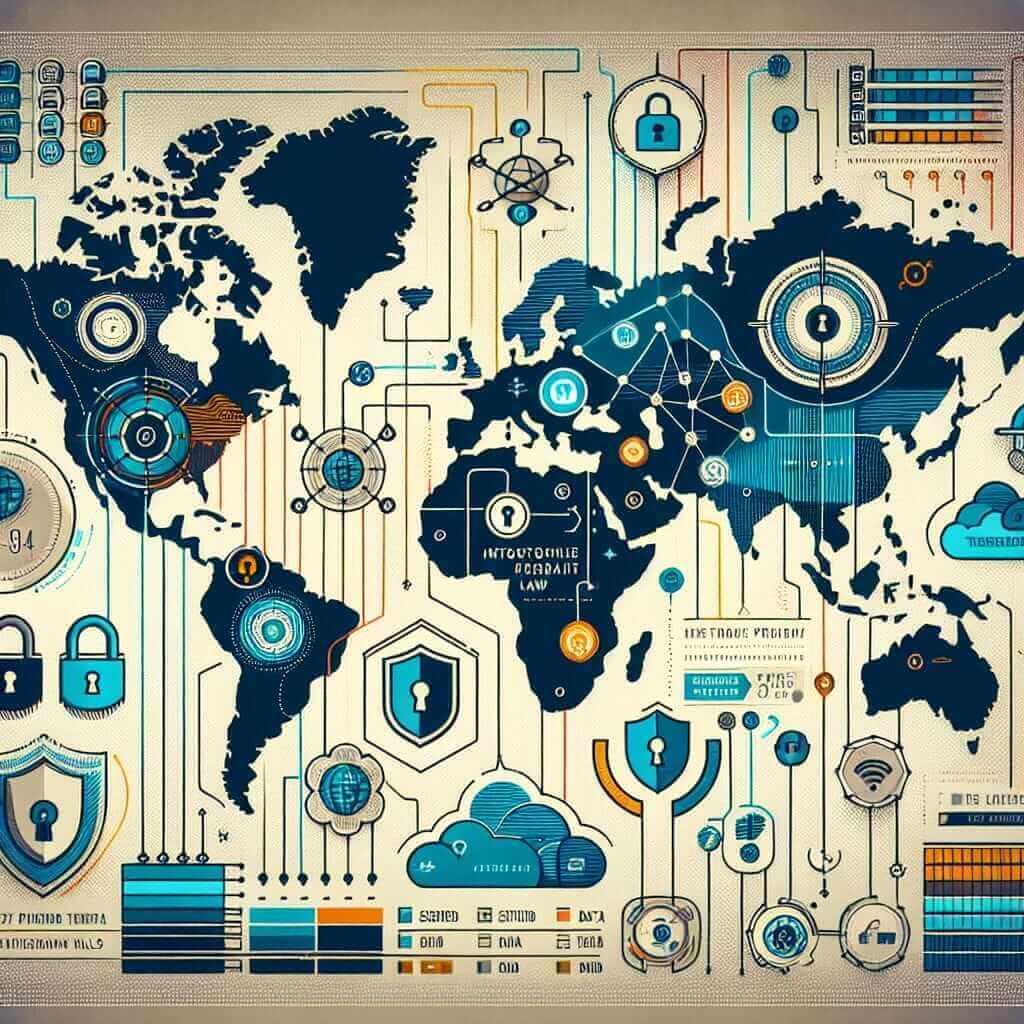The IELTS Reading test can seem daunting with its wide array of topics and sophisticated texts. One trending topic in recent exams is the impact of the internet on privacy and data security. This subject has gained prominence due to the increasing reliance on digital services and the growing concerns over data breaches and privacy violations. Understanding this topic can not only give you a competitive edge in your IELTS Reading test but also prepare you for real-world scenarios.
In this article, we will delve into an IELTS reading practice on the topic “What are the effects of the internet on privacy and data security?” This will include a full reading passage, various question types, answer keys, explanations, and a breakdown of essential vocabulary and grammar.
IELTS Reading Practice: Effects of the Internet on Privacy and Data Security
Reading Passage
The Effects of the Internet on Privacy and Data Security
The advent of the internet has revolutionized the way we communicate, access information, and conduct business. However, along with its numerous benefits, the internet has also brought significant challenges to privacy and data security. This article explores the effects of the internet on these crucial aspects.
One of the primary effects of the internet on privacy is the increased risk of data breaches. As more personal information is stored online, the potential for unauthorized access and misuse of this data has grown exponentially. High-profile incidents, such as the Facebook-Cambridge Analytica scandal, have highlighted the vulnerabilities in data security measures and the potential for misuse of personal information.
Moreover, the internet has facilitated the rise of cybercrime. Hackers use sophisticated techniques to steal sensitive information, which can result in financial loss and identity theft. Phishing attacks, where fraudsters trick individuals into providing personal information, have also become increasingly common.
Another significant concern is the erosion of privacy due to pervasive surveillance. Governments and corporations have access to vast amounts of data, which they can monitor and analyze. This surveillance raises ethical questions about the balance between security and privacy and the potential misuse of collected data.
On the positive side, the internet has also driven advancements in data security technologies. Encryption, multi-factor authentication, and artificial intelligence are being used to protect data and enhance privacy. Companies are investing heavily in security measures to mitigate the risks associated with online data storage and transactions.
In conclusion, while the internet has undoubtedly enhanced connectivity and access to information, it has also introduced substantial challenges to privacy and data security. As technology continues to evolve, it is imperative to address these issues to ensure that the benefits of the internet can be enjoyed without compromising individual privacy and data security.
Questions
Multiple Choice
-
What is one of the primary effects of the internet on privacy?
a) Improved communication
b) Increased data breaches
c) Reduced identity theft
d) Decreased financial loss -
The Facebook-Cambridge Analytica scandal is an example of:
a) Improved data security measures
b) Successful privacy protection
c) Vulnerability in data security
d) Advances in online business
True/False/Not Given
- Phishing attacks trick individuals into providing personal information.
- Governments and corporations do not have access to personal data collected online.
- Multi-factor authentication is not used to enhance data security.
Matching Headings
Match the following headings (i-v) to the correct paragraphs (1-5):
i) Advances in Data Security Technologies
ii) Increased Cybercrime Activities
iii) The Dual Nature of the Internet’s Impact
iv) The Risk of Data Breaches
v) Pervasive Surveillance
Answer Keys and Explanations
- b) Increased data breaches: The passage mentions that one of the primary effects of the internet is the increased risk of unauthorized access and misuse of personal information.
- c) Vulnerability in data security: The Facebook-Cambridge Analytica scandal highlighted vulnerabilities in data security measures.
- True: The passage explicitly states that phishing attacks trick individuals into providing personal information.
- False: The passage states that governments and corporations have access to vast amounts of data.
- Not Given: The passage mentions that multi-factor authentication is used to enhance data security but does not state that it is not used.
Matching Headings:
- iv) The Risk of Data Breaches
- ii) Increased Cybercrime Activities
- v) Pervasive Surveillance
- i) Advances in Data Security Technologies
- iii) The Dual Nature of the Internet’s Impact
Common Mistakes
- Misinterpreting the details in the passage.
- Failing to identify the main idea of each paragraph.
- Overlooking specific keywords that can change the meaning of the information.
Vocabulary
- Advent (noun) /ˈæd.vənt/: the arrival of a notable person or event.
- Breach (noun) /briːtʃ/: an act of breaking or failing to observe a law, agreement, or code of conduct.
- Pervasive (adjective) /pərˈveɪ.sɪv/: spreading widely throughout an area or group of people.
- Encryption (noun) /ɛnˈkrɪp.ʃən/: the process of converting information or data into a code to prevent unauthorized access.
Grammar
-
Relative Clauses: Used to add extra information about a noun.
- Example: “Hackers use sophisticated techniques which can result in financial loss.”
-
Passive Voice: Used to emphasize the action rather than the subject.
- Example: “Personal information is stored online.”
Tips for a High IELTS Reading Score
- Practice regularly with past exam papers.
- Improve your vocabulary by reading a variety of texts.
- Focus on understanding the context and main ideas.
- Learn to identify different question types and their requirements.
For further reading on online privacy regulations, check out our article on The Effects of Online Privacy Regulations.

By following these strategies and familiarizing yourself with topics like the impact of the internet on privacy and data security, you can enhance your comprehension skills and boost your IELTS Reading score. Good luck!